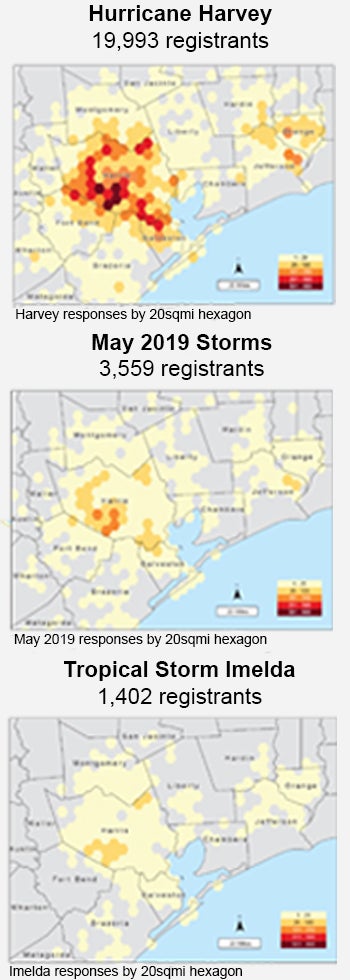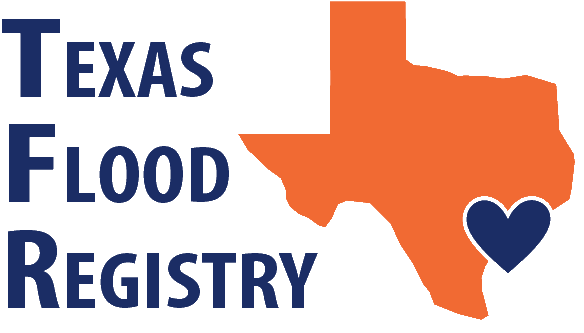Understanding climate risk by examining the past

Communities along the Texas Gulf Coast were devastated after Hurricane Harvey hit in 2017. As we realized the scope and scale of Harvey's impact, it became clear that a systematic way was needed to identify and measure the storm's long-term health and housing impacts. The registry, which was launched in 2018, helped communities in Houston and the surrounding areas understand the environmental health risks from the storm and recover through innovative public health solutions.
The creation of the Texas Flood Registry is a first-of-its-kind initiative that combines survey data from household storm-event experiences with severe weather data, community health data, and data on economic and housing losses to measure the long-term impacts of major storms in the Texas Gulf Coast Region. Following Tropical Storm Imelda in 2019, our team and collaborators expanded the registry to measure the effects of extreme weather events and better prepare the region for the future. A webinar hosted by Rice's Kinder Institute for Urban Research and the Department of Statistics, housed in the George R. Brown School of Engineering and Computing, presented findings from the Texas Flood Registry's 2020 Report and included a panel discussion with registry collaborators.
Today, the registry can be scaled and adapted to understand severe weather events across the U.S. Registry data is secured on the Kinder Institute Urban Data Platform, a data library and computing environment that provides research-ready data for the Greater Houston Area. All survey data collected for this research is encrypted and stored on a secure HIPAA-compliant web server.
The Center for Research Computing's Spatial Studies Lab at Rice was responsible for website updates and technically maintaining the project between 2022 and 2024.
Texans played a vital role in helping us achieve the project’s goal!
We thank over 20,000 community members from across Texas who joined the registry by completing surveys on how major storms like Harvey and Imelda impacted their health, homes, and other parts of their lives. By sharing their experiences, Texans help fill significant gaps in our understanding of major storms.
Funding from the Cullen Trust for Health Care, the Environmental Defense Fund, the National Institutes of Health, and the National Aeronautics and Space Administration (NASA) Applied Sciences Program supported the development of the Texas Flood Registry, previously called the Hurricane Harvey Registry.
